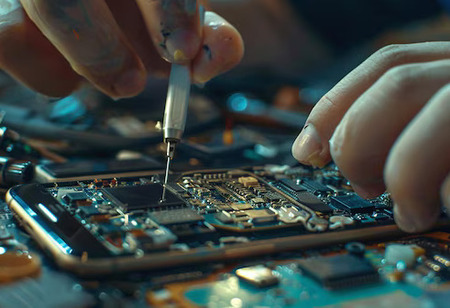
Intel Chip Architect Su Fei Returns to China After 20 Years


Following almost 20 years of influencing Intel's processor development, a prominent semiconductor designer, Su Fei has departed the US to become a full-time faculty member at Tsinghua University.
Su Fei, an experienced professional specializing in chip evaluation and semiconductor dependability, now holds the position of Xing-Hua endowed chair professor at the integrated circuits school of his former university.
Also Read: In Thailand, Coconuts' Role Rolls Far Beyond the Platter
During his tenure at Intel, Su's contributions covered the complete processor development process – from initial design concepts through large-scale manufacturing – emphasizing the enhancement of dependability, protection, and sustained functionality of sophisticated microprocessors utilized across various applications, from mobile devices to server facilities.
Also Read: How Beijing Turned its Challenges into Opportunity to Win Green Energy Goals
An examination of Su's social media presence shows that he additionally contributed to establishing international chip design standards, supervised academic research at American institutions to tackle real-world engineering problems, and earned numerous professional recognitions for his contributions.
Su, who holds senior membership status with the Institute of Electrical and Electronics Engineers (IEEE), expressed being "deeply inspired" by the potential to connect academic research with industrial applications – a consistent focus throughout his professional journey.
Su was born and raised in China, where he obtained both his undergraduate and graduate degrees from Tsinghua University. He subsequently pursued doctoral studies at Duke University, earning his PhD in electrical and computer engineering in 2006.
That same year, he began his career at Intel as a staff engineer, focusing on creating testing methodologies for energy-efficient mobile processor chips. His work expanded to include designing essential components for wireless communication and camera systems.
Also Read: Artificial Intelligence Can Now Predict Ocean Current Seven Months in Advance
Su eventually spearheaded initiatives to develop chips with enhanced self-monitoring capabilities, enabling them to track their operational status in real-time and maintain stability under challenging conditions.
His work focuses on creating semiconductor devices capable of identifying defects, recovering from malfunctions, and sustaining consistent performance over their operational lifetime. This research has resulted in multiple international patents and innovations implemented in consumer products.
A notable patent from 2020 outlines a machine-learning framework for identifying abnormal patterns in analog semiconductors—commonly found in automotive and industrial applications—that helps prevent critical system breakdowns in high-stakes environments.
Su played a role in establishing various IEEE industry standards and acted as a professional mentor for numerous collaborative research initiatives between academic institutions and industry through the Semiconductor Research Corporation (SRC).
In 2021, the SRC—a prominent American research organization that bridges university research facilities with corporate partners—recognized Su with the Mahboob Khan Outstanding Industry Liaison Award for his exceptional work in student guidance, collaborative research, and knowledge transfer.
He has earned numerous distinguished paper awards, including recognition from the IEEE Circuits and Systems Society and the IFIP/IEEE International Conference on Very Large Scale Integration Design.

